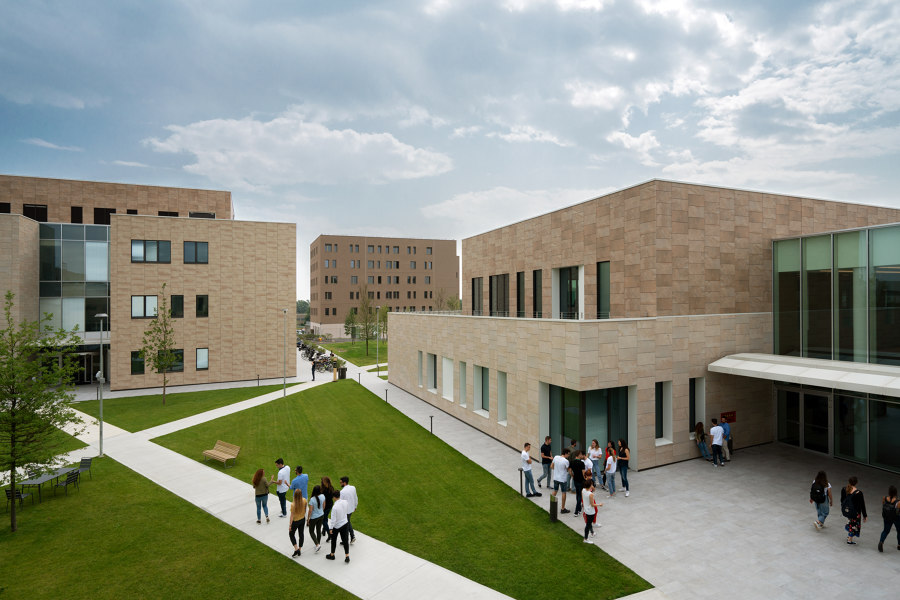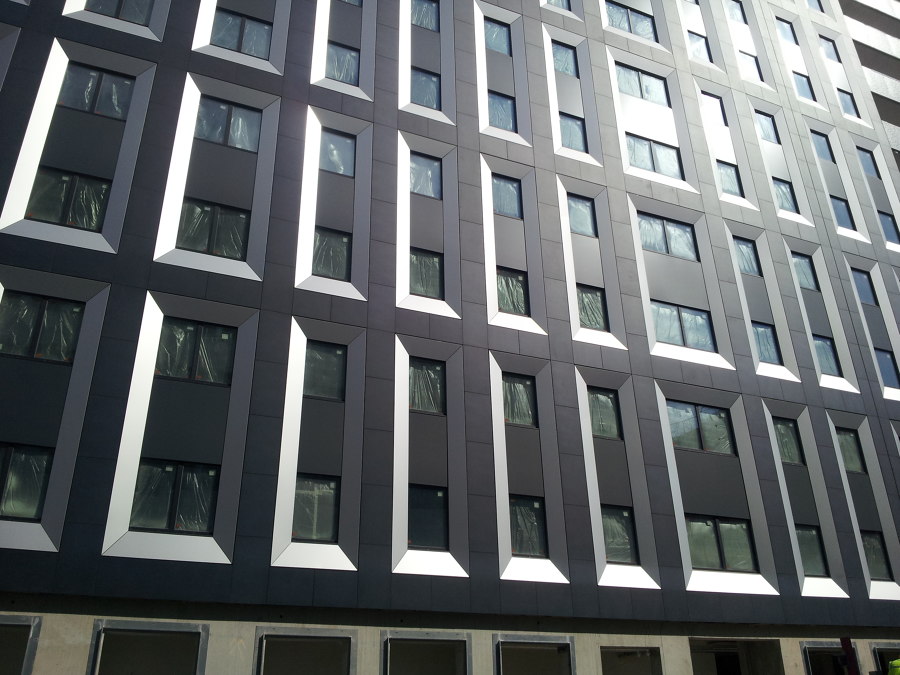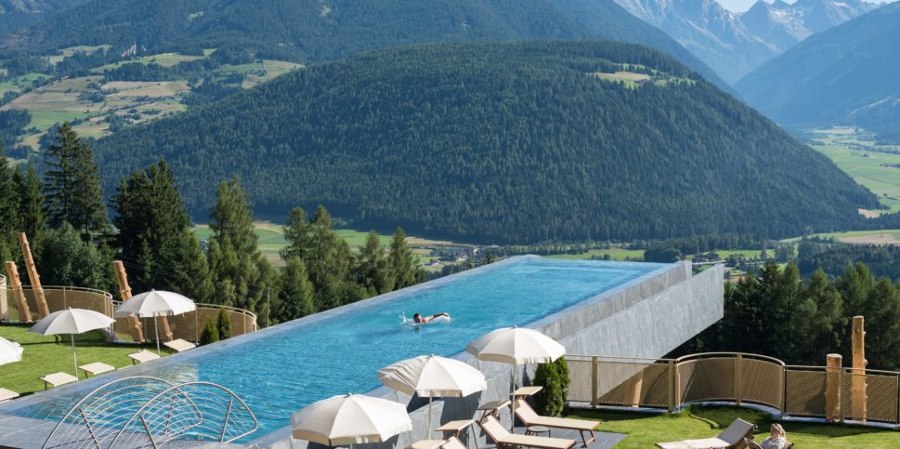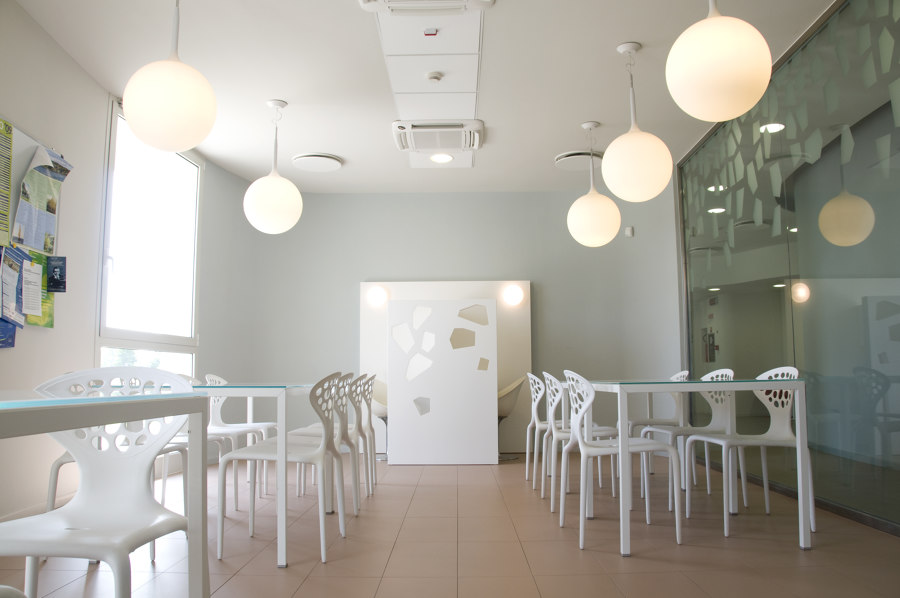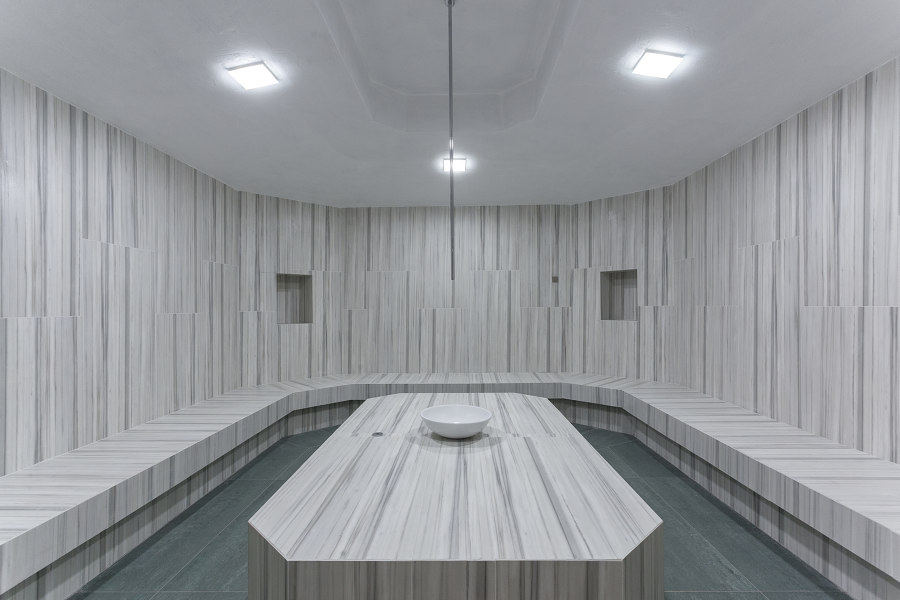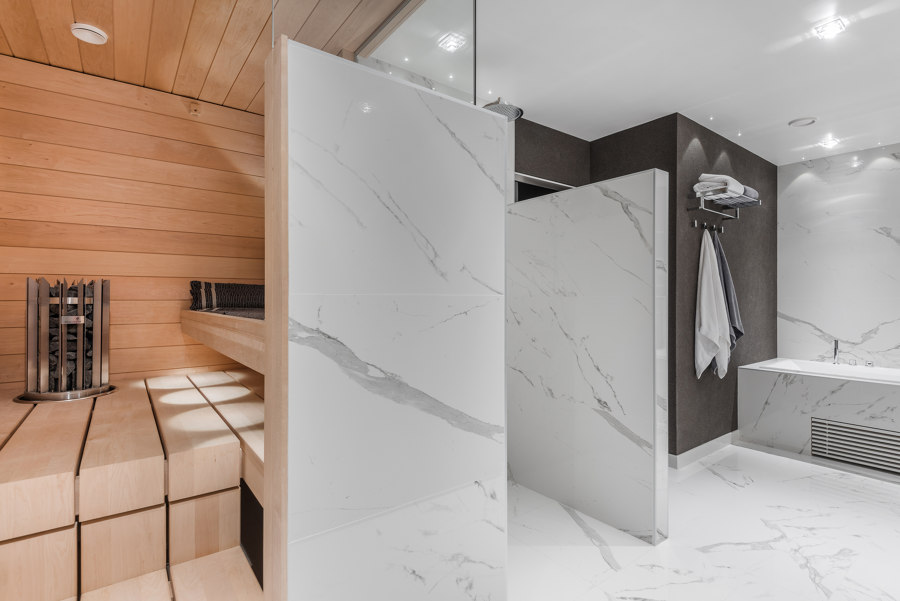Tech Tile: Casalgrande Padana
Historia de la marca de Anna Winston
London, Reino Unido
10.12.19
For almost 60 years, porcelain stoneware manufacturer Casalgrande Padana has been investing heavily in research to extend the performance limits of ceramics in an architectural context.
Casalgrande Padana has become an industry leader in architectural ceramics thanks to its commitment to research and innovation
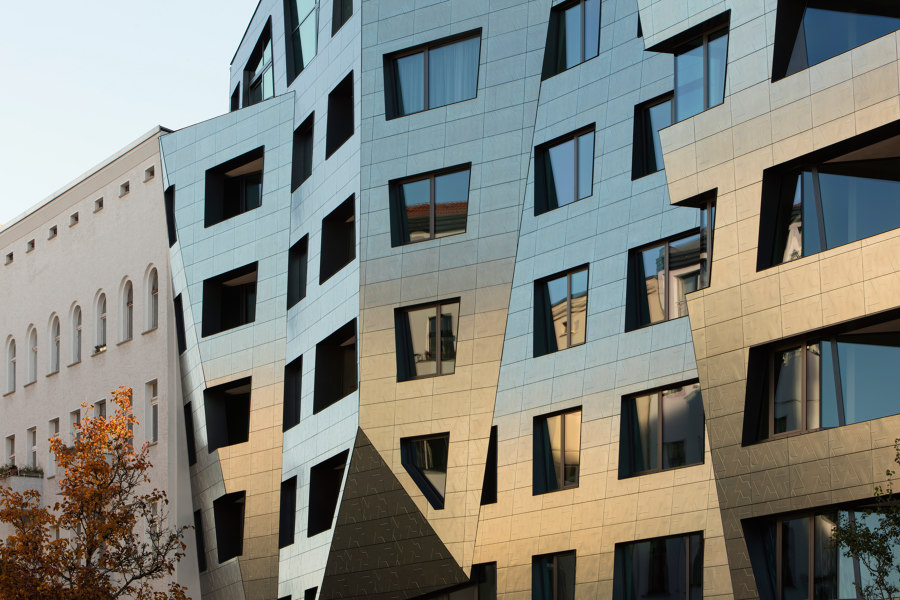
Casalgrande Padana has become an industry leader in architectural ceramics thanks to its commitment to research and innovation
×Ceramics are among the most ancient of the materials used by man to make objects, with some of the earliest examples found by archaeologists dating back to 24,000 BC. Ceramics allowed us to create vessels, which transformed the way humanity functioned.
Unlike textiles, ceramics were durable. Ceramic objects could be used to store grain, to store water, to keep things, and they could also be beautiful. Ceramic artefacts have been crucial in helping us understand our own history, predating written records by thousands of years. And ceramics still play a crucial role in today’s world.
Casalgrande Padana’s ventilated cladding systems played a key role in the delivery of the Humanitas Campus project in Italy. These engineered stoneware systems can help architects transform a structure as well as reduce energy consumption
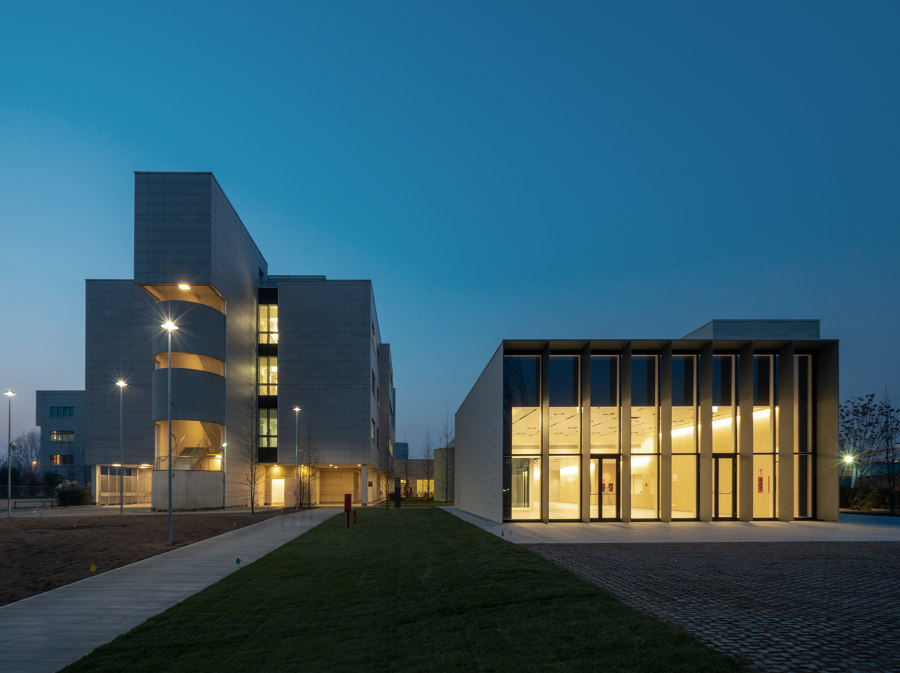
Casalgrande Padana’s ventilated cladding systems played a key role in the delivery of the Humanitas Campus project in Italy. These engineered stoneware systems can help architects transform a structure as well as reduce energy consumption
×With the tag line 'solutions, not products', Casalgrande Padana has spent almost 60 years investing heavily in research that pushes the limits of how ceramics can perform in an architectural context. It has helped transform this ancient material group into a high-performance, high-tech resource with products that can handle almost any scenario from self-cleaning and ventilated facades to tactile, antibacterial, swimming-pool tiles.
The company’s Bios Self-Cleaning facade systems use a natural chemical reaction triggered by sunlight to repel pollution and dirt, making them easy to maintain
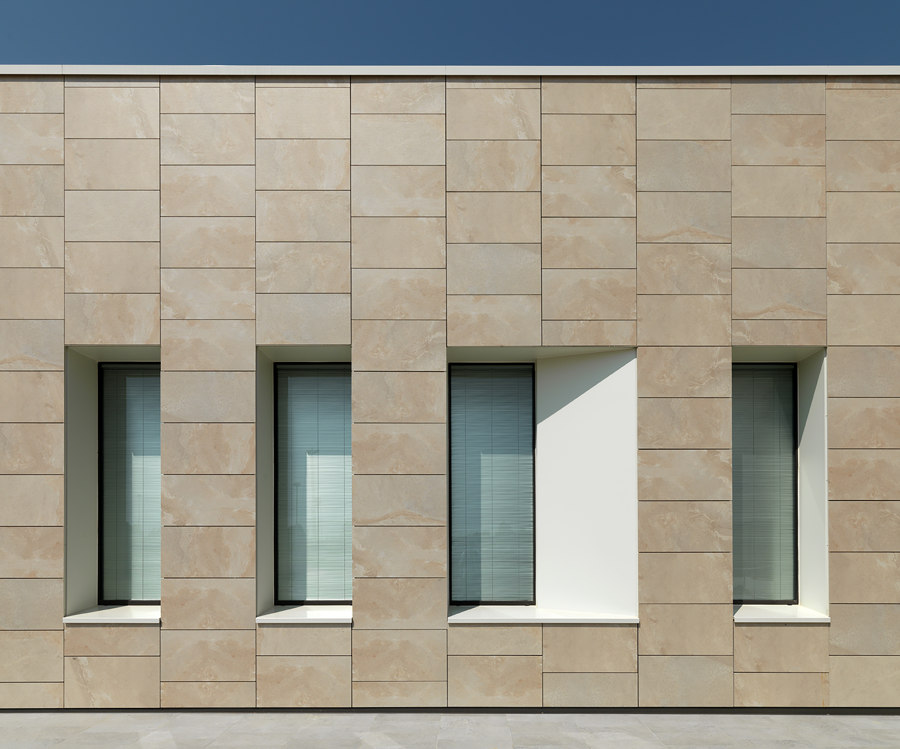
The company’s Bios Self-Cleaning facade systems use a natural chemical reaction triggered by sunlight to repel pollution and dirt, making them easy to maintain
×At the heart of its strategy is a desire to look for answers beyond the boundaries of what might be considered the norm in the ceramics industry, says Casalgrande Padana engineer Mirko Castagnetti. The company has ‘defined new concepts and types of application’ for ceramics, he says, opening up unexplored market areas and developing innovative solutions in terms of raw materials and processing cycles through research carried out at its laboratory and its various development site in Italy.
Today’s designers and architects are increasingly demanding, which is helping to push the company towards further, new innovations. 'There is a greater demand in the development of technically valid solutions,' says Castagnetti.
'These are products that will last a lifetime, and maybe even provide future archaeologists with artefacts to wonder at'
For interiors, the company has developed its Bios Antibacterial Hydrotect technology that incorporates titanium oxide to remove bacteria that are commonly found in wet spaces like swimming pools and spas
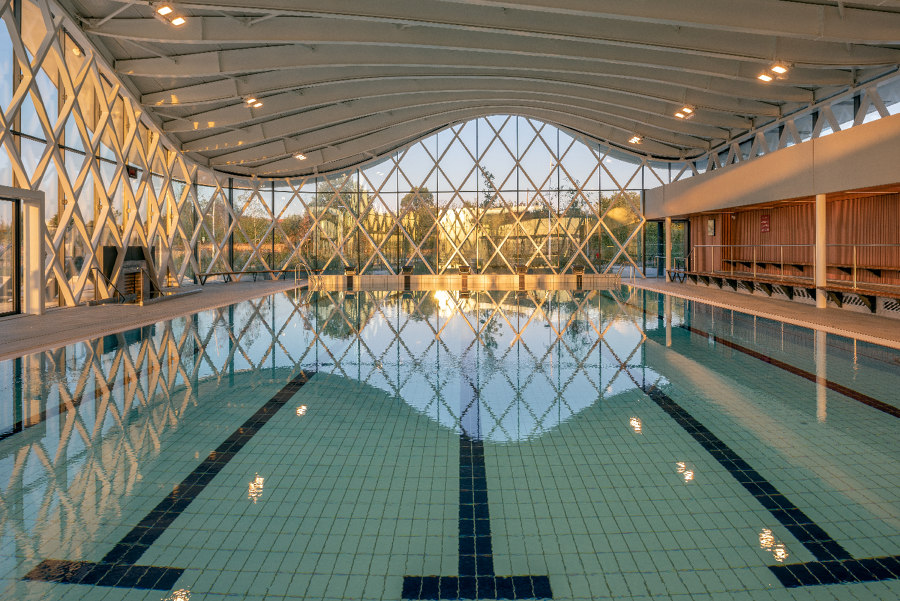
For interiors, the company has developed its Bios Antibacterial Hydrotect technology that incorporates titanium oxide to remove bacteria that are commonly found in wet spaces like swimming pools and spas
×Around 80 percent of Casalgrande Padana’s output is unglazed, porcelain stoneware – a material that can be used in a multitude of applications and one that the company helped pioneer in terms of contemporary architectural applications. Among its most recent innovations is the self-cleaning Bios Ceramics technology, developed in collaboration with sanitary-ware manufacturer Toto.
The Bios-Ceramics ranges feature two main technologies – a natural chemical reaction triggered by exposure to sunlight is harnessed in the Bio Self-Cleaning facade system, repelling pollutants and dirt on the exterior of a building so that they are washed away by rain, while the Bios Antibacterial ceramic flooring uses titanium oxide to remove bacteria that are particularly common in spas, swimming pools and wellness centres.
The Bios Ceramics ranges, developed with Japanese firm Toto, are also ideal for medical interiors – such as the Stefano Ferrari Centre of Regenerative Medicine pictured above – as they can help maintain a hygienic environment

The Bios Ceramics ranges, developed with Japanese firm Toto, are also ideal for medical interiors – such as the Stefano Ferrari Centre of Regenerative Medicine pictured above – as they can help maintain a hygienic environment
×The company also takes great pride in its offering of ventilated facade systems, where slabs of ceramic are attached to the exterior of a building using a system of hanging and fastening devices, with space for insulation between the product and the building that allows air to rise and create a natural warming effect.
As well as protecting structural walls, ventilated facades can reduce a building’s energy consumption and can also be used to completely overhaul its exterior appearance. Casalgrande Padana’s engineers have developed systems that can integrate unusually large slabs as well as products with vertical, inclines and curved surface designs that can be combined in a myriad of ways to create different effects and realise almost any architectural vision.
The majority of Casalgrande Padana’s output is unglazed, porcelain stoneware, but the company works closely with architects and designers to find the right solution for each project, from public swimming pools to luxury spas
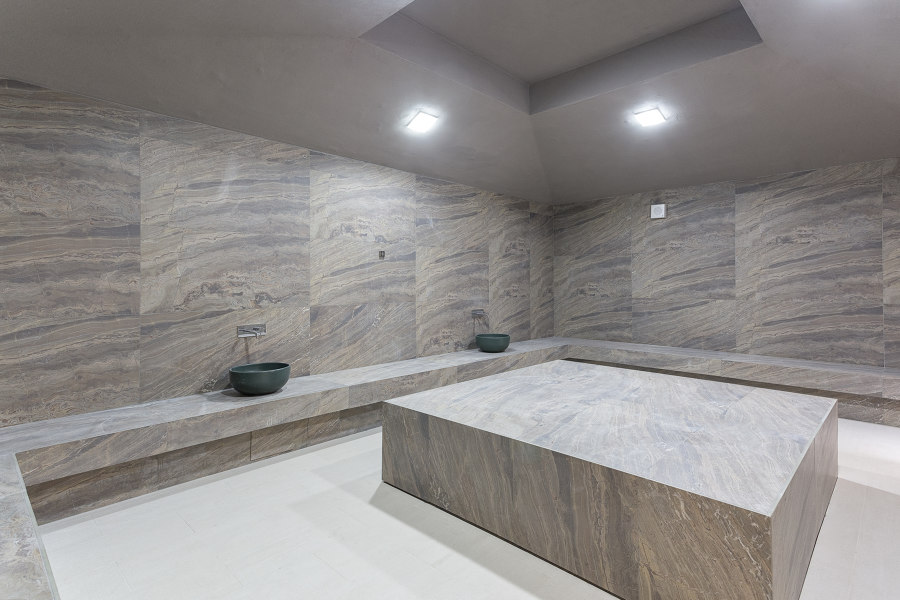
The majority of Casalgrande Padana’s output is unglazed, porcelain stoneware, but the company works closely with architects and designers to find the right solution for each project, from public swimming pools to luxury spas
×It’s not all about chemistry and engineering though. Casalgrande Padana’s Granitogres Tactile collection takes a different, more elemental approach, using texture and colour to create a wayfinding system for users with impaired vision.
'The need to guarantee people with disabilities greater autonomy and security during their journeys led us to develop the Tactile series – a collection entirely dedicated to those who have developed alternative senses, such as touch,' explains Castagnetti.
The same rigorous development process applies to Casalgrande Padana’s Lux Line, which combines high-performance with a luxury aesthetic
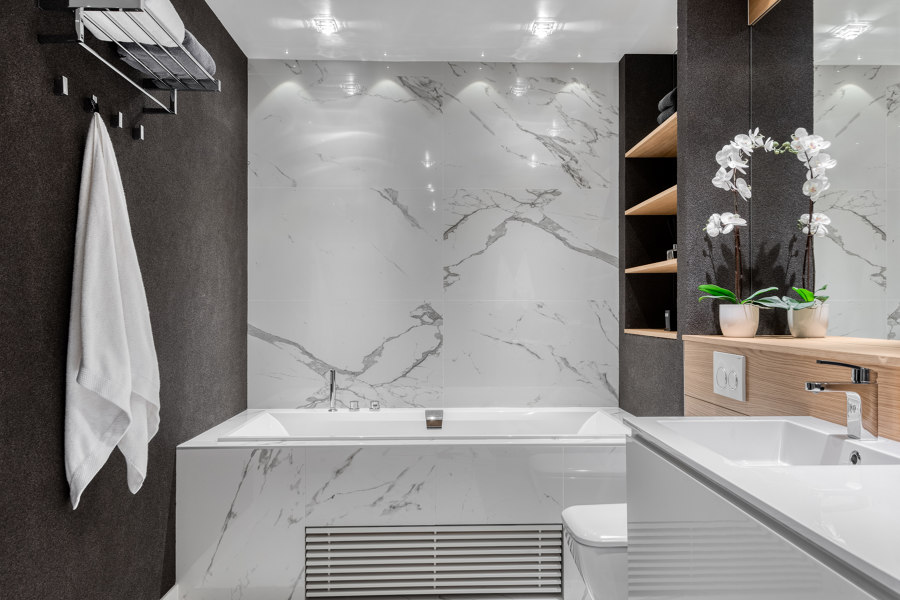
The same rigorous development process applies to Casalgrande Padana’s Lux Line, which combines high-performance with a luxury aesthetic
×Sustainability has also been a key driver in the company’s approach. Ceramics are made from natural materials, and Casalgrande Padana has developed what it describes as a ‘closed-circuit’ production process that enables it to create products with a very low environmental impact, in terms of both their manufacture as well as lifespan. These are products that will last a lifetime, and maybe even provide future archaeologists with artefacts to wonder at.
© Architonic

